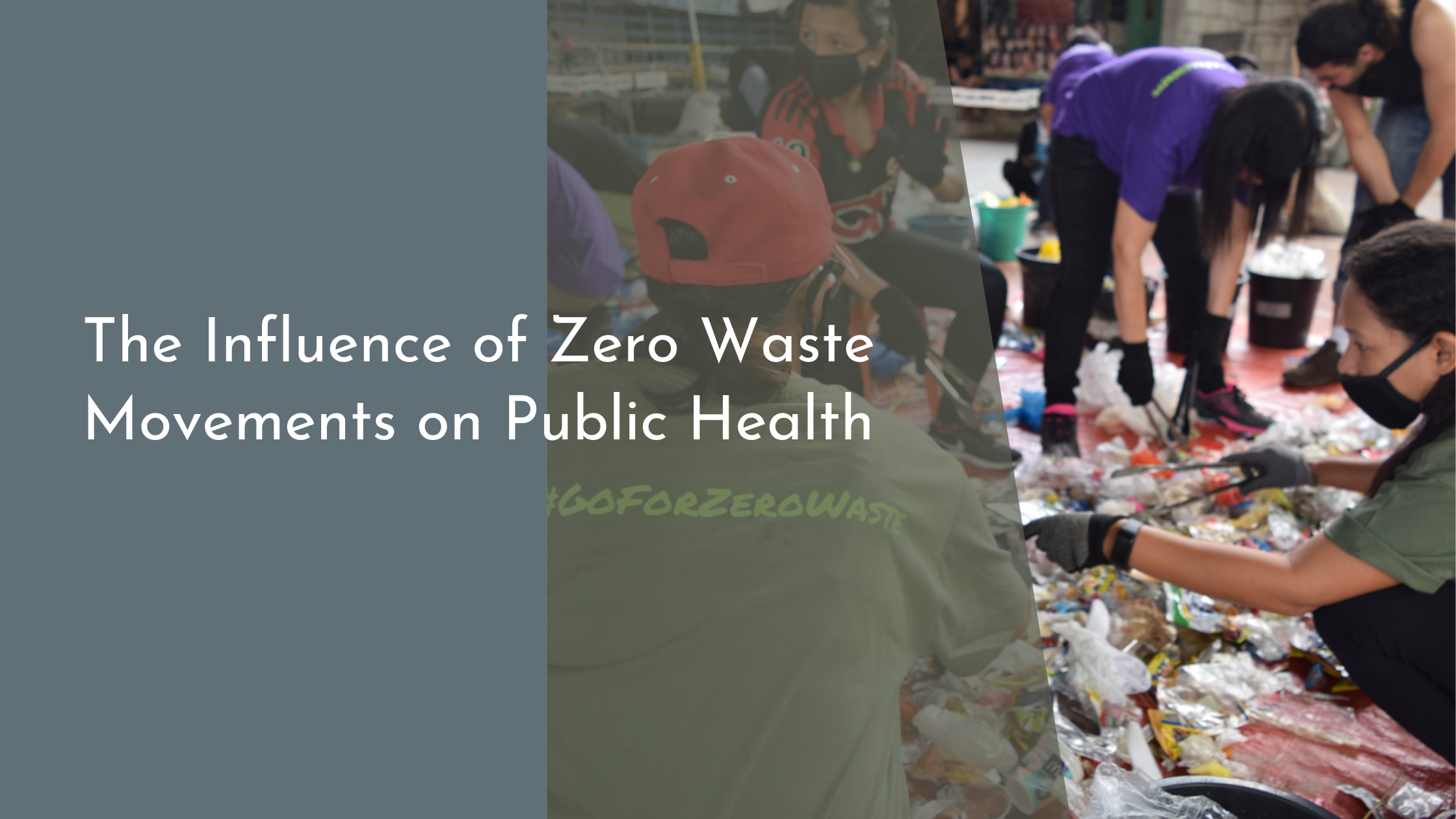The Influence of Zero Waste Movements on Public Health
The zero waste movement has garnered global attention for its ambitious goal of minimizing waste and maximizing resource efficiency. This initiative, driven by growing concerns about environmental sustainability, seeks to reshape consumption patterns and production processes. While much of the conversation around zero waste focuses on environmental benefits, its implications for public health are equally significant. By reducing pollution and promoting healthier lifestyles, zero waste practices can lead to profound improvements in community well-being. This article delves into the core principles of zero waste, its public health benefits, global success stories, and the promising future it heralds.
Understanding Zero Waste and Its Core Principles
Zero waste is an environmental movement that encourages the redesign of resource life cycles so that products are reused rather than discarded. The core principles of zero waste include reducing consumption, reusing resources, recycling materials, and composting organic waste. By advocating for a circular economy, zero waste aims to ensure that all products are made to be repurposed, ultimately minimizing landfill contributions and reducing the harmful environmental impact of waste. This approach requires a shift in mindset from a linear “take, make, dispose” model to one that views waste as a valuable resource.
The zero waste philosophy extends beyond mere waste management; it encompasses a holistic approach to sustainable living. This involves conscious consumerism, where individuals and businesses prioritize products that are durable, repairable, and recyclable. It also emphasizes community engagement, advocating for local solutions to waste management and encouraging grassroots participation in waste reduction efforts. Zero waste principles challenge us to rethink the way we produce and consume, aiming for a system where waste is entirely eliminated and resources are perpetually cycled.
How Zero Waste Practices Benefit Public Health
Implementing zero waste practices can significantly enhance public health by reducing pollution and improving air and water quality. Landfills, a major source of methane emissions and leachate, pose serious environmental and health risks. By diverting waste away from landfills through composting and recycling, zero waste strategies help decrease harmful pollutants and greenhouse gases. This leads to cleaner air, reducing respiratory issues and other health problems associated with pollution. Moreover, composting organic waste enriches soil, promoting healthier food production and broader ecological benefits.
Beyond environmental health, zero waste practices encourage healthier lifestyles. They promote the consumption of fresh, unpackaged foods, reducing reliance on processed and packaged goods that are often high in preservatives and additives. By emphasizing the importance of reducing single-use plastics, zero waste movements help decrease exposure to chemical substances linked to health issues. Additionally, fostering community-based initiatives empowers residents to take charge of their health and environment, leading to more cohesive, resilient communities.
Case Studies: Success Stories from Around the World
Several cities worldwide have embraced zero waste initiatives, showcasing remarkable success in improving both environmental and public health outcomes. In Kamikatsu, Japan, residents diligently separate waste into 45 different categories, achieving an impressive diversion rate from landfills. This rigorous approach not only minimizes environmental impact but also fosters a strong sense of community among residents, creating a culture of sustainability and health-conscious living. The town’s zero waste model demonstrates how collective effort and community involvement can lead to significant positive change.
Another notable example is San Francisco, USA, which has implemented comprehensive zero waste policies aimed at reaching 100% waste diversion by 2020. Innovative measures such as mandatory composting and recycling, along with extensive public education campaigns, have led to substantial waste reduction and increased public health awareness. The city’s success underscores the importance of policy support and public engagement in achieving zero waste goals, proving that sustainable urban living is both attainable and beneficial to public health.
Embracing Zero Waste: A Cheerful Future for All
The zero waste movement paints an optimistic picture of the future, where environmental sustainability and public health go hand in hand. By adopting zero waste practices, individuals and communities can contribute to healthier ecosystems and urban environments. These changes have a ripple effect, encouraging sustainable economic development and reducing the healthcare costs associated with pollution-related illnesses. Embracing zero waste means investing in a cleaner, more sustainable world for future generations, fostering a sense of hope and empowerment.
The journey towards zero waste is a collaborative effort that requires active participation from governments, businesses, and individuals. Education and awareness are key to this transformation, as understanding the benefits and feasibility of zero waste can motivate more people to join the cause. As more communities adopt zero waste practices, the global movement gains momentum, driving innovation in waste management and sustainable living. The cheerful future envisioned by zero waste advocates is one where the planet and its inhabitants thrive harmoniously, ensuring a legacy of health and sustainability for all.
The zero waste movement is a beacon of hope in a world grappling with environmental challenges and public health issues. By reimagining our relationship with resources and waste, we can create healthier, more sustainable communities. The successes of zero waste initiatives worldwide demonstrate that change is possible when we work together towards a common goal. As we embrace these principles and practices, we pave the way for a future where both the planet and its people can flourish. Let us continue this journey with optimism and determination, knowing that every step we take towards zero waste brings us closer to a brighter, healthier tomorrow.


